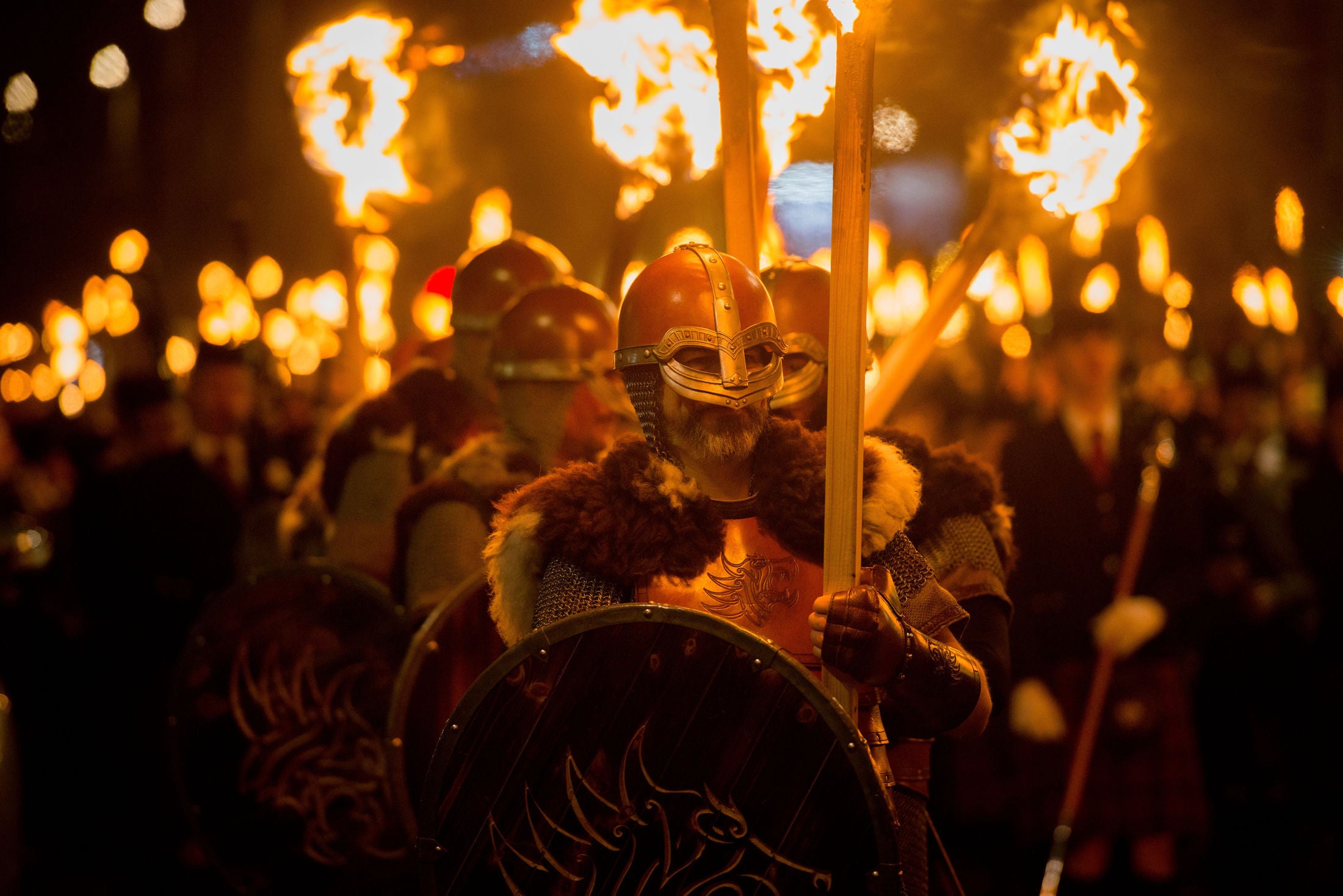Up Helly Aa: Women fight to be included in ‘discriminatory’ male-only Scottish festival
‘Other areas have moved forward, maintaining all that is best about the Up Helly Aa tradition while making it a family friendly, gender equal event,’ say campaigners

Your support helps us to tell the story
From reproductive rights to climate change to Big Tech, The Independent is on the ground when the story is developing. Whether it's investigating the financials of Elon Musk's pro-Trump PAC or producing our latest documentary, 'The A Word', which shines a light on the American women fighting for reproductive rights, we know how important it is to parse out the facts from the messaging.
At such a critical moment in US history, we need reporters on the ground. Your donation allows us to keep sending journalists to speak to both sides of the story.
The Independent is trusted by Americans across the entire political spectrum. And unlike many other quality news outlets, we choose not to lock Americans out of our reporting and analysis with paywalls. We believe quality journalism should be available to everyone, paid for by those who can afford it.
Your support makes all the difference.Women in Scotland are campaigning to end the “gender-biased” practice of male-only participation in Up Helly Aa, the famous annual fire festival held in Lerwick in the Shetland Islands.
The traditional Norse-inspired event sees around 1,000 men dress up as Viking warriors and march around the town’s streets holding flaming torches in 47 “squads”, led by the “Guizer Jarl” who heads up the festival and dresses as a character from a Norse saga.
The big finale is the burning of a replica Viking galley boat in a huge bonfire.
Taking place in January (this year on 28 January), although it’s a community event organised by locals, it has become something of a quirky tourist draw over the years.
However, behind the scenes, a battle is being fought over the Lerwick festival’s future, with activists calling for the event to embrace equality and allow women and girls to participate.
In 2018, Up Helly Aa for aa (or “Up Helly Aa for all”) was set up. The group has around 130 members, a quarter of them men, and campaigns for the inclusion of females in the festival.
The same year, a group of women went to register a squad to participate in the march, but were told to leave.
Girls as young as 10 face the same treatment.
“We know some young girls who would have loved to be in the junior squad but were turned down and that was very hard for them to take,” Debra Nicolson, a spokesperson for Up Helly Aa for aa, told The Independent.
“While Lerwick Up Helly Aa (LUHA) and Junior Up Helly Aa (JUHA) continue to promote gender inequality in the name of a historically brief ‘tradition’, South Mainland Up Helly Aa (SMUHA) and other areas have moved forward, maintaining all that is best about the Up Helly Aa tradition while making it a family friendly, gender equal event.
“As a private organisation that organises very public events, the committees of LUHA and JUHA are on questionable ground in maintaining that they can continue to promote their gender biased practice because of tradition, when other areas in Shetland are using the same traditions and evolving.”
Campaigners have argued that, since public spaces are used for the event and it is promoted in the area’s schools, it is in breach of the UK’s Equality Act 2010 by being discriminatory against women and girls.
However, in May 2019 the Shetland Islands Council ruled there was no breach of equality law.
The Convener of Shetland Islands Council, Malcolm Bell, told The Independent of the decision: “Lerwick Up Helly Aa continues to be an event which draws large numbers of people to Shetland and is widely enjoyed and supported in the community.
“I recognise that there are some strongly held views on both sides of this debate. Lerwick Up Helly Aa is a privately run event, run by the community, and the format is therefore a matter for their organising committee.”
Ms Nicolson said on behalf of Up Helly Aa for aa: “We can state that Shetland Islands Council did not seek any legal advice outside their own legal advisers within the council, and that we have advice that their actions do breach the equality law.”
The first LUHA festival dates back to 1881; other fire festivals that started later are more inclusive, with the SMUHA having made history in 2015 when it was led by a female Jarl.
Ms Nicolson added that the group believes it’s fear that is stopping the festival from moving with the times.
“We feel they fear change – or we hope it is just that they fear change, rather than they are being consciously sexist,” she said.
“We feel they fear that they will be inundated with women wanting to be in squads when this is not the case. But if it is, they should embrace it and use the newly available talent.”
The LUHA committee has not responded to The Independent’s request for comment.
Join our commenting forum
Join thought-provoking conversations, follow other Independent readers and see their replies
Comments